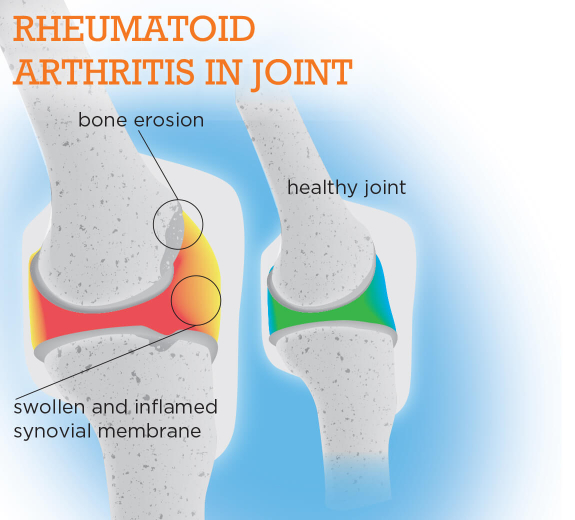University of Colorado, Denver
Experts at how the outside environment affects the immune system such as diet and medications. They are also exploring what might trigger the disease such as viruses.
University of California, San Diego
Experts on how genes are turned on and off and how that might contribute to RA or be used to eliminate RA.
Stanford University
Experts at understanding the immune system’s B cells that make the antibodies that precede RA and target the joint, CCP and RF, and how they develop and change as RA develops.
Benaroya Research Institute
Experts at how T cells contribute to RA. T cells are important in the immune system response because they tell the other immune system cells what to do in response to a virus or bacteria. They are key when the immune system makes a mistake and causes an autoimmune disease.
“We know T cells are important to RA because the most important gene linked to RA is the gene that determines how T cells function,” says Dr. Buckner. Building on work from BRI’s Gerald Nepom, MD, PhD, and Bill Kwok, PhD, a team working with Dr. Buckner and her colleague Eddie James, Phd have developed the ability to identify and isolate the cells that are targeting the joints in RA called citrilline-specific T cells.
“We have the capacity to take a small amount of human blood and look in-depth at these T cells, so we can understand what makes them become harmful and attack the body. We think these are the cells that cause RA. With these new tools, now we can make incredibly rapid progress with our samples from our generous volunteers. Once we understand what starts RA, then we can develop approaches to stop it before it takes hold.”
While scientists are looking in-depth at the immune system response, they are also studying the environmental issues around RA. Volunteers in the study fill out detailed questionnaires about their lifestyle including diet, smoking, medications and vitamins.
“We’ve found exciting and valuable information about what people can do to protect themselves,” says Dr. Buckner. “Through our research and that of others we’ve learned that smoking significantly increases your risk for RA. If no one smoked, 30 percent of the people with RA wouldn’t have it. Oral contraceptives appear to be protective and people who take omega 3 fatty acids (fish oil) appear to have a lower risk. These are just some of our group’s findings and we’re looking forward to identifying more.”





